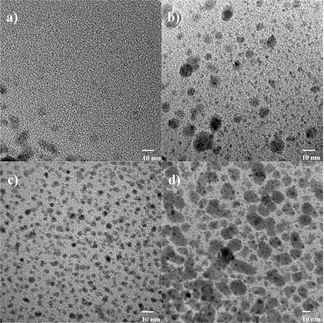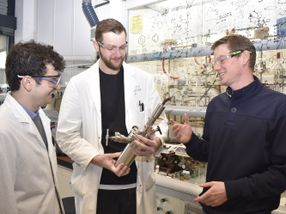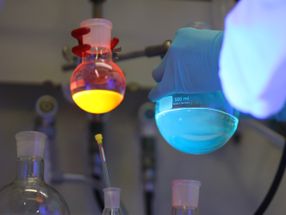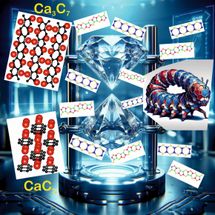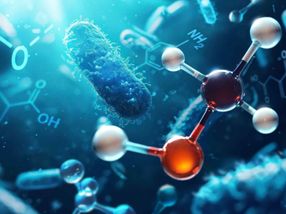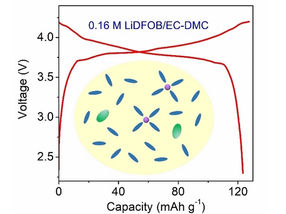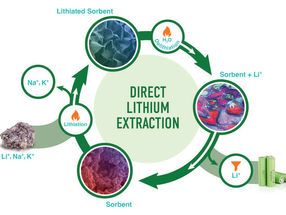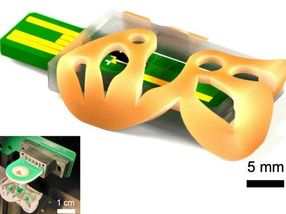Physicists harness effects of disorder in magnetic sensors
University of Chicago scientists have discovered how to make magnetic sensors capable of operating at the high temperatures that ceramic engines in cars and aircraft of the future will require. The key to fabricating the sensors involves slightly degrading samples of a well-known semiconductor material, called indium antimonide, which is valued for its purity. Chicago's Thomas Rosenbaum and associate Jingshi Hu, now of the Massachusetts Institute of Technology, have published their formula in Nature Materials.
Most magnetic sensors operate by detecting how a magnetic field alters the path of an electron. Conventional sensors lose this capability when subjected to temperatures reaching hundreds of degrees. Not so in the indium antimonide magnetosensors that Rosenbaum and Hu developed with support from the U.S. Department of Energy.
"This sensor would be able to function in those sorts of temperatures without any degradation," said Rosenbaum, the John T. Wilson Distinguished Service Professor in Physics.
Rosenbaum's research typically focuses on the properties of materials observed at the atomic level when subjected to temperatures near absolute zero (minus-460 degrees Fahrenheit). More than a decade ago, he led a team of scientists in experiments involving silver selenide and silver telluride, two materials that exhibited no magnetic response at low temperatures. But when the team introduced a tiny amount of silver (one part in 10,000) to the materials, their magnetic response skyrocketed.
In silver selenide and silver telluride, the magnetic response disappears at room temperature, which limits their technological applications. But Rosenbaum and Hu now have used two methods to recreate the effect at much higher temperatures in indium antimonide. Disordering the material — simply grinding it up and fusing it with heat — produces the effect. So does introducing impurities of just a few parts per million.
Most read news
Other news from the department science

Get the chemical industry in your inbox
From now on, don't miss a thing: Our newsletter for the chemical industry, analytics, lab technology and process engineering brings you up to date every Tuesday and Thursday. The latest industry news, product highlights and innovations - compact and easy to understand in your inbox. Researched by us so you don't have to.
Most read news
More news from our other portals
See the theme worlds for related content
Topic world Sensor technology
Sensor technology has revolutionized the chemical industry by providing accurate, timely and reliable data across a wide range of processes. From monitoring critical parameters in production lines to early detection of potential malfunctions or hazards, sensors are the silent sentinels that ensure quality, efficiency and safety.

Topic world Sensor technology
Sensor technology has revolutionized the chemical industry by providing accurate, timely and reliable data across a wide range of processes. From monitoring critical parameters in production lines to early detection of potential malfunctions or hazards, sensors are the silent sentinels that ensure quality, efficiency and safety.
